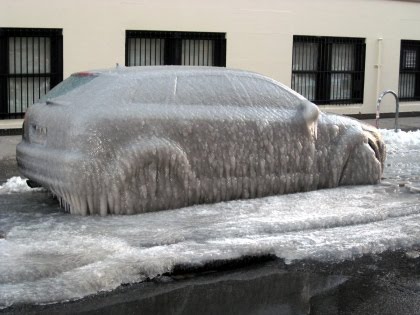
Winter is nearly upon us. Misty memories of sun-drenched beaches and grilling by the pool will soon be replaced by drifting snowflakes and roaring fires. And while winter can often bring beauty to the landscape, it can wreak absolute havoc on the roads and on your car.
While winterizing your vehicle might cost a little time and money, it’s 100% worth it. Truly. I mean that.
But instead of proving that by just listing what you should do, let’s go through the 7 times you might think to yourself, “I should have winterized my car...”
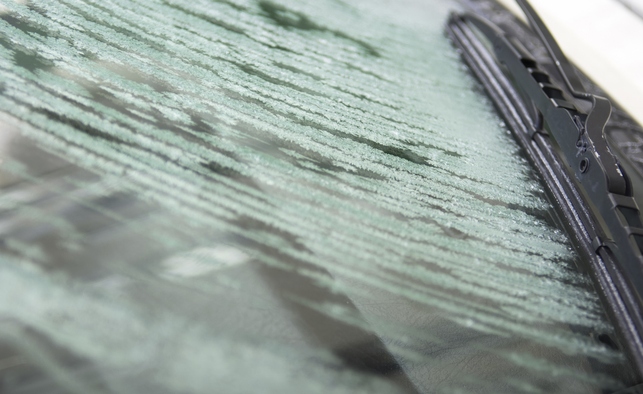
1. It’s a complete whiteout, and you’re stuck in gridlock traffic. The roads are already covered in snow, and it’s coming down in buckets. You turn on your windshield wipers, and they screech and skid across your windshield, not removing any of the frozen ice. “Oh no, not now.” You try using the washer fluid, but it just turns the ice on your windshield blue…
Replacing windshield wipers usually costs about $30 to replace all 3 (if you have a rear one), and takes mere minutes to install yourself. It’s your choice…a $30 investment, or a potentially nightmarish commute? I’d err on the side of caution with this one.

2. It’s the day after a huge snowstorm. The drifts are deep and your windshield is caked in dirt and salt. You start up your car and turn on the washer fluid. Nothing. “What?” You go to check under the hood only to find that the reservoir is frozen solid…
In the winter, it’s important to make sure that your washer fluid has the correct mixture of antifreeze to water to avoid having it freeze solid. Before it gets cold, add washer fluid that’s rated to a very low temperature. Most mechanics will do this at no charge.
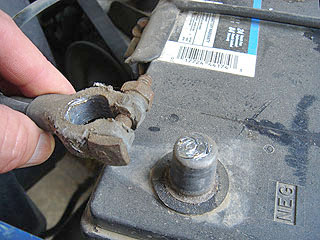
3. “Man it’s cold!” It’s the second day in a row with a record low. You scurry out to your car, hop inside and turn the key. Not a sound. “Oh no…” You try again, but nothing happens…
Sometimes it gets so cold that a car battery just won’t start, no matter how healthy it is. However in most places, if you check your battery for corrosion, cracked cables and overall health before cold strikes, you’ll likely avoid a major issue. Ask your mechanic to check it out for you.
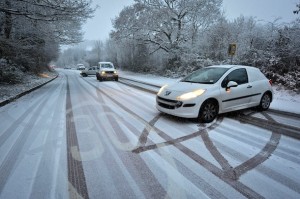
4. “Wow, this snow is coming down hard.” You’re carefully driving down the highway, and through the white out, you make out brake lights ahead. You lightly tap on your brakes, but your car begins to skid out. Before you can even compensate, the car is already spinning out. Barely missing another car, and slowly but surely drift towards the guardrail…
Without snow tires, your risk of spinning out on treacherous roads increases dramatically. And while it may cost an extra $400 for snow tires, they can last several winters, and help you avoid potentially costly body damage.

5. Another cold day. The entire week has been below freezing! You get in your car to start it up. It sputters, but won’t turn over. After a few more times you open the hood and check your oil. It looks like honey…
In cold, oil tends to thicken, making it tougher to flow through the engine. This makes the engine stressed, and in turn a vehicle may not start. In the winter check your owner’s manual to see if the manufacturer recommends oil that stays thinner in the cold, like 5W-30.
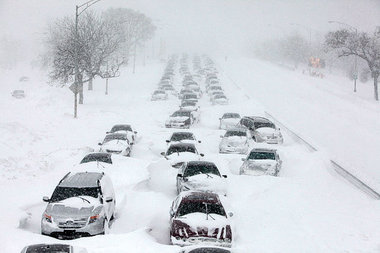
6. Unbelievable. There’s now 8 inches of snow around your car, and you’re not going anywhere. You’ve called the police, and all they’re saying is that help is on the way. Even though you keep clearing snow from around your exhaust pipe, it’s only a matter of time before you run out of fuel…
Even if you don’t live in an area that typically receives a lot of snowfall, things can quickly become dire. For example, in March of 2015, a crippling snowstorm hit parts of Kentucky, stranding hundreds of motorists for 24 hours on the highway. In situations like that, having a small emergency kit including a blanket, a radio, extra washer fluid, flares and a flashlight give you the best chance to stay warm and ride out the storm.

7. The warm sun beats down on your face as you walk towards your car. Just before you get there, something ugly catches your eye near the back wheel well. “Is that…rust? How did that happen?“ You go to the other side and see that it’s starting to show up there too…
Over time, invisible sand and corrosive salt from winter ice melt can eat away at the paint and body of your vehicle, causing it to pit and rust. Even though it seems trivial, paying $15 for a car wash right before and after the winter season is definitely worth it to keep your vehicle’s exterior healthy.
Are there other winterizing tips that I’ve left out? Comment below if there are! Also, please share this article on social media to help your friends know that it’s (unfortunately) yet again time to winterize your car.








